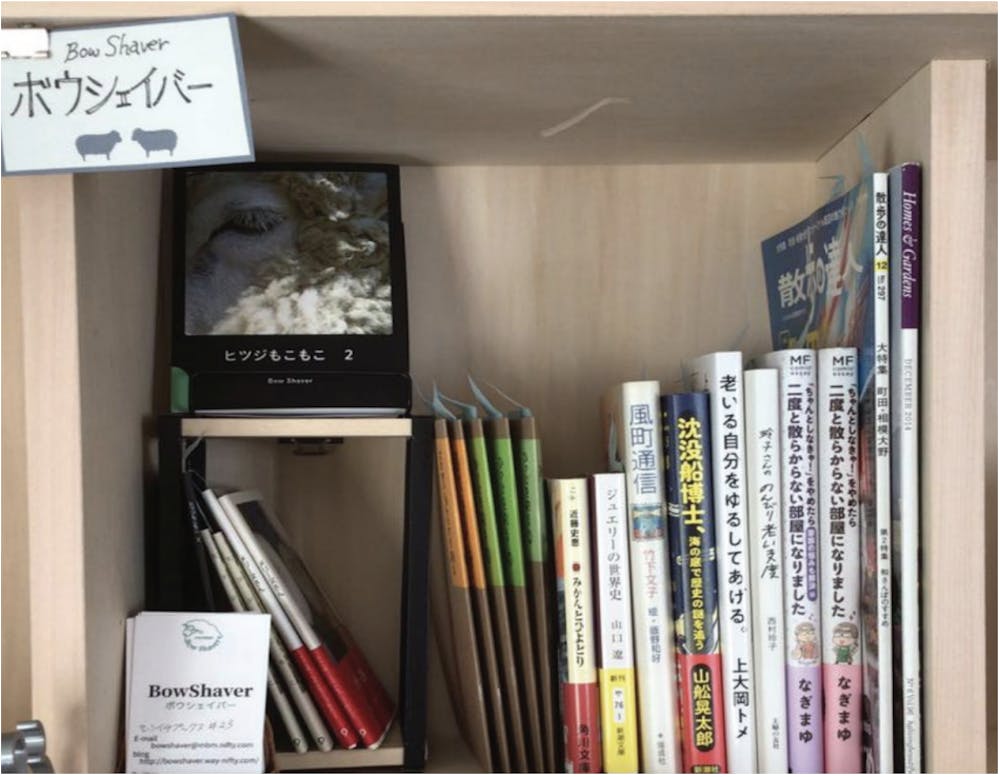A small sign promising a book store directs me up narrow, light blue steps to an open dark green door.
“Irrashaimase!” I hear as I enter a humble Japanese bookshop.
Stacks of square shelves face each other across the room as a table centers, directing my eyes towards a sunlit, flower decorated balcony. I look around curiously, finding the curation of this bookstore strange. I’m meant to work here for the next three months, and I have no clue what the purpose of this book store could be. So I begin digging.
Senichi Books, or “1000+1 Books,” is a small bookstore located in Sengawa, Chofu in Tokyo, Japan. Home to 100 32-centimeter square bookshelves, the goal of 1000+1 Books is to create a space for people to express themselves through books that they’re interested in by allowing people to purchase shelves and curate them as if each shelf were its own bookstore.
“That is the most important thing for Japanese [people], I think. They heavily compare with other people. They’ve had many comparative [exams] from elementary school, you know. But here, they don’t need to compare to others. If they don't have that uniqueness, they can’t create their bookshelves,” Yucca Koinuma said.
Koinuma, my advisor, is a calligraphy teacher who is active at 1000+1 Books. She can normally be found in the store as a shopkeeper, hosting events or teaching calligraphy classes. Koinuma’s relationship with calligraphy is reflective of 1000+1 Books’s goal of guiding people toward self discovery. She believes that calligraphy’s reliance on repetition inspires deep reflection of the self.
“People say that calligraphy is an art, but art adds new things right? New creative ideas, new creative ways, add, add, add. But calligraphy, it gets rid of the idleness of extra things. We do the same activities, it’s really simple, you know, make a line, with [a] brush and black ink. We [use] simple activities to see our inside: how I am, what condition [I'm in],” Koinuma said.
1000+1 Books strives toward the same journey of self-understanding and introspection as calligraphy by providing a blank canvas for people to paint their inner selves on. Choosing to observe interactions rather than interrupt the flow with my Japanese, I noticed the ease that filled customers’ eyes as they explored shelves filled with carefully selected recommendations. “Could I be up there too?” they must be wondering. Because I certainly am.
I discovered this gem through the Middlebury study abroad program requirement that every student engage in the Japanese community through various volunteering activities. Other volunteer sites include local schools, an on-campus farm and even an ikebana, or traditional Japanese flower arrangement studio.
Aspiring to be a Japanese literary translator, I imagined a bookstore would be the perfect place to immerse myself in the environment of my future work. However, instead of understanding the work of a writer in Japan, I learned about the importance of community and expression at 1000+1 Books.
“It’s purpose is to function as an “ee-bah-show” [a place where one feels a sense of belonging], to connect people and the city especially in a place like Tokyo where people are pretty detached from other people,” said Ryo Nishikubo ’23.5, who volunteered at 1000+1 Books in the spring semester of 2022. “It creates a space where people want to get to know each other, to like to connect with each other.”
It’s rare to discover a shop revolving around community with a strong emphasis on self-expression. It almost contradicts itself as a community space designed for self-expression, but I think that’s what makes it so unique — encouraging people to be who they want to be around other people. It is a safe place to be yourself.
Hey there! I'm Shamail. I'm a current sophomore who is studying Japanese and Russian along with literature. I'm hoping to become a translator some day! I'm glad to be working with The Campus this year and I'm super excited to be surrounded by passionate, talented writers and editors!




